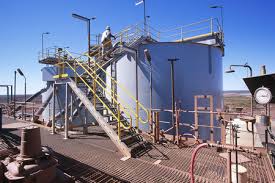 NEWPORT (UK): Indian-origin tycoon has made British steel history by resuming production at his 40-year-old mothballed plant here even as the UK steel industry is facing severe hardships due to a global slump.
NEWPORT (UK): Indian-origin tycoon has made British steel history by resuming production at his 40-year-old mothballed plant here even as the UK steel industry is facing severe hardships due to a global slump.
Sanjeev Gupta, managing director of international steel and metals group Liberty House, hailed the resumption of production at the Liberty Steel Newport rolling mill on the banks of the river Usk in Newport as the start of a new era.
“It is the result of a lot of hard work and a strong belief in the potential of the plant here and the skills of the workforce. Steel production is right at the heart of the manufacturing eco-system,” Gupta said.
“By investing in making steel products we are helping to sustain a whole network of customers and suppliers across the South Wales and UK economy,” Gupta said today.
UK-based Gupta founded Liberty as a metals trading company from his student flat at Cambridge University in 1992.
The firm acquired the Newport facility in 2013 and retained the 150 staff over the intervening period in order to be ready to restart when market conditions allowed.
The start of production at Liberty Steel Newport this week comes at a time of severe hardships for the UK steel industry, which has been grappling with a global slump in the value of steel.
“We intend to buck the recent trend in the UK steel industry, which has culminated in the tragic loss of jobs at both the TATA Llanwern site here in Newport and the closure of SSI Redcar [north-east England],” Gupta said.
“The UK has the richest history in steel production in the world and production is viable here, what is needed is a lean productive operation which is also agile and flexible, and one that is able to adapt quickly to changes in the market. We intend to continue creating jobs and investing in the skills of local people here in South Wales,” he added.
Initially the Newport steel works will produce nearly 50,000 MT of hot-rolled coil (HRC) per month for the UK domestic market, with potential to increase this to 100,000 HRC per month to serve export markets as well.
Steel from the plant will be used in the making of a variety of products, from fencing through to crash barriers, lorry chassis to office furniture, tooling through to general fabrication.
Representatives of the steel industry, local community and public sector gathered at the 110-acre site to celebrate the development at the plant, which was first set up as Alphasteel.
“Once energy prices for UK industry are brought in line with the rest of Europe, we will look to re-start the Melt Shop also to make liquid steel once again. It is inconceivable that the UK exports scrap that is melted in other countries who then supply steel made from this scrap back here,” Gupta said.
“Until we can make liquid steel again we will import slabs from the most competitive sources available, produce HRC and service our UK customer base efficiently,” he said.–PTI





